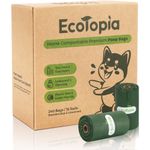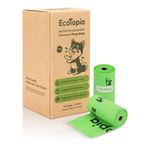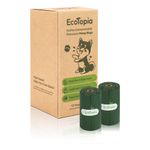We live in a plastic jungle. From the toothpaste tube we squeeze in the morning to the takeout container we throw away at night, plastic has become nearly impossible to avoid. But as awareness grows about its environmental toll, more people are asking: is plastic-free living actually possible?
The Problem With Plastic
Plastic is durable, cheap, and versatile. But that’s also what makes it dangerous. Most plastics don’t decompose—they just break into tiny pieces called microplastics, which now pollute our oceans, soil, and even our bodies.
Globally, over 380 million tons of plastic are produced every year, and only about 9% of it is recycled. The rest? It ends up in landfills, waterways, or incinerators, releasing toxic chemicals and endangering wildlife.
The Road to a Plastic-Free Life
Going entirely plastic-free might not be realistic for everyone, but reducing your plastic footprint is totally doable. Here’s how to start:
-
Refuse what you don’t need: Say no to straws, freebies, and extra packaging.
-
Replace single-use with reusable: Water bottles, coffee cups, grocery bags—easy swaps that save money and waste.
-
Support sustainable brands: Choose products with compostable or recyclable packaging. (Hint: EcoTopia’s bags are made from corn starch and break down naturally!)
-
Buy in bulk: It reduces packaging waste and usually saves money.
-
Be patient: Sustainable habits take time to build. Don’t aim for perfection—progress is what counts.
Plastic-Free is a Mindset
It’s not just about ditching plastic—it’s about being more mindful of how we consume. It’s about realizing that every item we use came from somewhere and will end up somewhere. When we choose to live with less waste, we’re choosing to live with more purpose.
EcoTopia’s Role
Our mission is to make sustainability practical. Our home compostable poop bags are just one way we’re tackling the plastic problem—turning a daily chore into an eco-win. If millions of dog owners make the switch, the ripple effect will be huge.
Final Thought
The plastic-free journey may be imperfect, but it’s powerful. Every choice you make adds up. The planet doesn’t need a few people doing zero-waste perfectly—it needs millions doing it imperfectly but intentionally. Ready to start?





